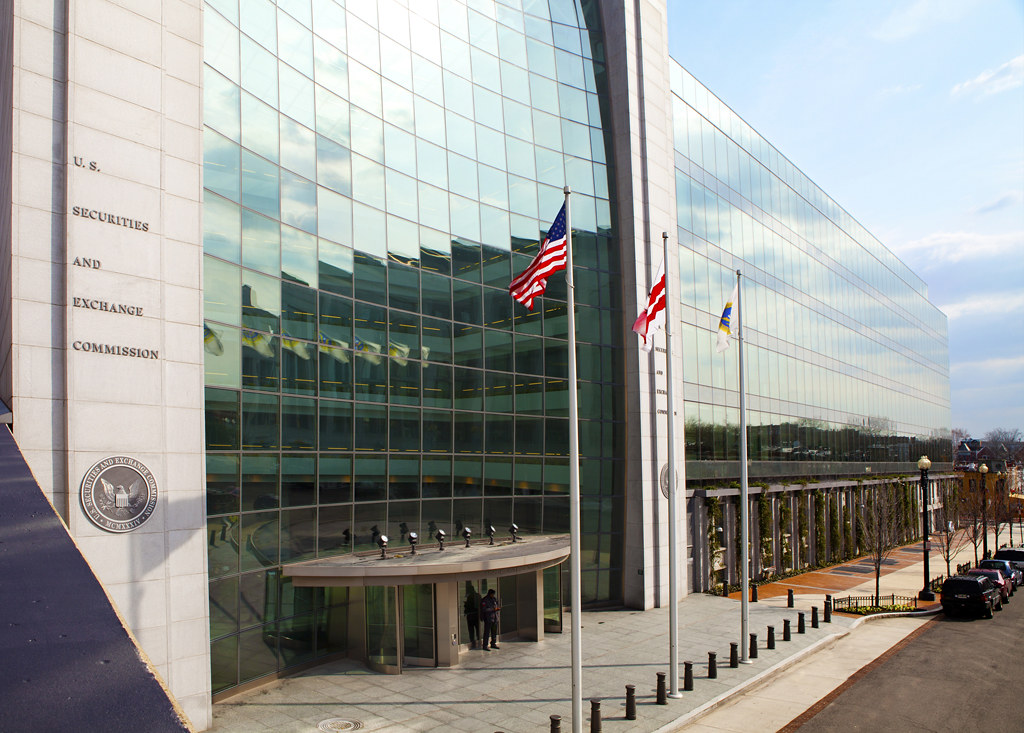Progressives and climate activists were initially heartened by the prospect of Gary Gensler at the helm of the U.S. Securities and Exchange Commission (SEC), the regulatory powerhouse responsible for regulating coordinating stock trading. And some of Gensler’s initial staffing decisions also inspired plaudits. However, we were shocked when SEC Chairman Gensler announced last week he would appoint veteran Wall Street defense lawyer Alex Oh to lead the SEC’s powerful enforcement division. This appointment is an absolute rejection of progressive values, not to mention climate reality.
Alex Oh has worked in corporate law for over 20 years, going to bat for companies including ExxonMobil, Fannie Mae, Bank of America, and Pfizer, when they had allegedly engaged in illegal and harmful behavior. Her role as a corporate lawyer — to defend corporations whose wrongdoings were investigated by the government, oftentimes by the SEC — is completely antithetical to what her new gig demands.
Oh’s history as a revolver and loyalty to Wall Street is objectively concerning in a role where she would manage over 1,300 employees, mostly lawyers, but it’s especially troubling in the context of the SEC’s mandate to be a climate leader this decade.
Climate advocates hope the SEC will lead in creating mandatory climate risk disclosure standards to be used across the financial sphere. Requiring companies to be transparent to investors about the climate-related risks involved in a stock would, ideally, incentivize companies to move away from climate-damaging activities and encourage potential investors to put their money into climate-friendly assets instead.
Climate leaders are also counting on the SEC to investigate fraudulent listings and activities in order to hold polluters accountable. So, logically, those counting on the SEC to lead on climate should be very concerned that Oh, who has spent her career helping corporations hide from SEC’s enforcement, is now in position to let those same corporations off without a fight — why would she ruin relationships with past and likely future clients?
Oh’s record suggests that she would be a major impediment to the SEC taking meaningful steps to address the climate crisis. At her corporate BigLaw firm Paul Weiss, Oh worked on behalf of fossil fuel companies, Wall Street banks, and multinational corporations to stymie SEC investigations. According to her (now-deleted, but fortunately preserved by the Internet Archive) biography, Oh defended ExxonMobil in multiple lawsuits alleging violations of the Alien Tort Statute and related claims.
In one of the aforementioned cases, Oh defended ExxonMobil against Indonesian villagers after Exxon and their employees helped perpetuate human rights abuses. The plaintiffs alleged that they, or their relatives, were “detained, tortured, sexually assaulted, killed, or otherwise abused by Exxon’s paid military security personnel, who were under Exxon’s direction and control,” and that U.S. Exxon executives knew of the abuse. Oh argued for the dismissal of the suit.
The potential for the SEC to take climate action is huge, and we don’t doubt that Gensler is serious in his commitment to climate action. But what good will it do for Gensler to implement climate-forward financial policy if Wall Street is comfortable in the knowledge that the rules will never be truly enforced? Regulation without proper enforcement will only allow Wall Street to continue its status quo, which in this case has the implication of an unstable, uninhabitable planet.
Photo: “Securities and Exchange Commission Headquarters Building” bySecurities and Exchange Commission is licensed under CC BY-NC-SA 2.0

